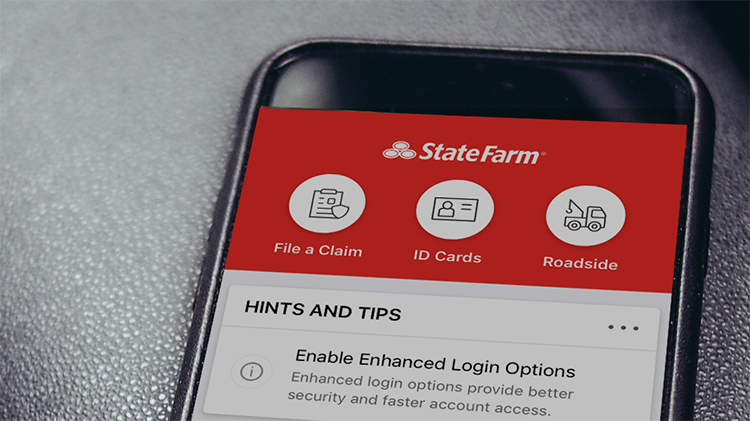
Published: Oct 18, 2024
How to Sign Up for Renters Insurance Coverage in 2025: A Step-by-Step Guide
How to Sign Up for Renters Insurance Coverage in 2025: A Step-by-Step Guide
I’ve seen more naked apartments than a furniture delivery guy, and let me tell you, nothing looks sadder than a bare room after a disaster strikes. But don’t worry, I’m here to cover your assets and show you how to dress your place in the finest insurance protection!
TLDR: What's the quickest way to get renters insurance coverage?
1️⃣ Choose a reputable insurance provider
2️⃣ Gather necessary information about your rental and belongings
3️⃣ Get a quote online or through an agent and select your coverage
Table of Contents
- Why You Need Renters Insurance
- Understanding Renters Insurance Coverage
- How to Choose the Right Renters Insurance Provider
- Step-by-Step Guide to Sign Up for Renters Insurance
- How Much Renters Insurance Coverage Do You Need?
- Tips for Saving Money on Renters Insurance
- Common Questions About Renters Insurance
- What’s not covered by renters insurance? 🙅♀️
- Is renters insurance required by law? 🚨
- How do renters insurance claims work? 🚨
- What’s the deal with actual cash value (ACV) vs. replacement cost? 💸
- Do I need extra coverage for my furry friend? 🐾
- Will renters insurance cover my work-from-home setup? 💼
- Can I share a renters policy with my roommate? 👯♀️
- What happens if I break my lease or move out early? 🚚
- Renters Insurance in 2025: What’s New?
Why You Need Renters Insurance
Sure, your place looks cute with that IKEA Billy bookcase and thrift store art prints, but what happens when disaster strikes? Lemme paint you a picture:
🔥 Your neighbor’s scented candle obsession leads to an apartment fire, torching your stuff and leaving you couch surfing.
💦 A burst pipe drowns your laptop, textbooks, and that sweet vintage concert tee collection.
🌪️ A wild storm blows out your windows, and suddenly your living room looks like a Jackson Pollock painting.
Think it can’t happen to you? Over 40% of renters face property damage or theft every year! And without renters insurance, you’re on the hook for replacing everything yourself. 😱
It’s Not Just About Your Stuff
Renters insurance isn’t just protecting your PlayStation and Air Fryer. It’s got your back if:
🏥 Your clumsy friend slips on a banana peel in your kitchen and breaks their arm. Hello, medical bills.
🐶 Your pandemic puppy chews up the neighbor’s designer shoes. Oops, liability claim.
🏨 A covered disaster makes your place unlivable, and you’re stuck paying for a hotel room.
Affordable Peace of Mind
Think insurance is just for fancy San Francisco lofts and Malibu beach pads? Think again! The average renter can score coverage for the price of a monthly Netflix subscription. That’s a small price to pay for a big safety net.
So don’t let common myths hold you back:
- ❌ “My landlord’s got me covered.” (Spoiler: they don’t.)
- ❌ “I don’t own much.” (You’d be surprised how it adds up.)
- ❌ “It’s too expensive.” (It’s cheaper than replacing everything yourself!)
Real-Life Renter Nightmares
Still not convinced? These true stories might change your mind:
🥂 Rachel’s upstairs neighbor threw a wild party that ended with a broken sprinkler flooding her apartment. Renters insurance saved her from drowning in debt.
🌋 When Hawaii’s Kīlauea volcano erupted, renters insurance helped evacuees cover temporary housing costs.
🦝 Jenna woke up to find raccoons had broken in and trashed her kitchen. Insurance covered the damages and put her cooking show dreams back on track.
The bottom line? Renters insurance is a cheap way to protect your bank account from your crazy neighbors, freak accidents, and snack-seeking critters. Trust me, future you will thank you for signing up. 😉
Understanding Renters Insurance Coverage
Alright, now that we know why renters insurance is as essential as a plunger in your bathroom, let’s dive into what it actually covers. Think of it like a superhero utility belt - it’s got gadgets for all sorts of sticky situations:
Personal Property Protection 🛋️
This is the bread and butter of your policy. It covers your stuff like:
Electronics Laptops, TVs, gaming consoles
Furniture Sofas, beds, dining sets
Clothing From your favorite hoodie to your little black dress
Appliances Microwaves, blenders, coffee makers
(up to a limit)
If these items are stolen or damaged by a covered event like a fire, vandalism, or burst pipes, your insurance will help pay to repair or replace them. Just make sure to choose between ”actual cash value” (factors in depreciation) or ”replacement cost” coverage.
Pro Tip: Do a home inventory 
Document what you own with photos, receipts, and a list of items. It’ll make filing a claim easier than finding a vegan option at a Texas BBQ joint.
Liability Coverage 🦺
This part protects you if you’re held responsible for injuries or property damage to others. Some real-life scenarios:
- Your dog bites your neighbor
- A guest slips and falls in your apartment
- You accidentally start a small kitchen fire that damages the building
Liability kicks in to cover:
- Legal fees if you’re sued
- Medical bills for the injured person
- Repairs for property damage
Most policies offer at least $100,000 in liability, but you can opt for more if you’ve got Mariah Carey-level assets to protect.
Additional Living Expenses (ALE) 🏨
Let’s say your place becomes unlivable due to a covered disaster like a fire or tropical storm. ALE helps pay for temporary digs so you’re not sleeping in your car or crashing on your ex’s couch.
It covers reasonable costs like:
- Hotel or Airbnb stays
- Restaurant meals if you can’t cook
- Laundry services
- Pet boarding fees
- Storage unit rentals
Just keep in mind, this coverage is usually capped at a certain amount or time period, so don’t get too cozy at the Ritz-Carlton.
What’s Not Covered ⚠️
Renters insurance is amazing, but it’s not a magic wand. Here are some things it typically doesn’t cover:
(you’ll need separate flood insurance)
(ditto for earthquake insurance)
Your roommate’s belongings (they need their own policy)
Your car (that’s what auto insurance is for)
(consider ”scheduling” them for extra coverage)
Now that you know the ins and outs of renters insurance coverage, you’re ready to start shopping for a policy that fits you like a Snuggie. Stay tuned for tips on choosing the right provider and acing the signup process! 🙌
How to Choose the Right Renters Insurance Provider
Alright, you’re sold on getting renters insurance, but how do you pick the perfect provider? It’s like choosing a Netflix show - there are tons of options, and you don’t want to get stuck with a dud. Here’s how to find your insurance soulmate:
Check Their Reputation 🕵️♀️
Not all insurance companies are created equal. Some are the Meryl Streep of the industry, while others are more like Tommy Wiseau. Do your homework by:
- Reading reviews on sites like Consumer Affairs and J.D. Power
- Checking their Better Business Bureau (BBB) rating
- Asking friends and family for recommendations
Look for a provider with a track record of happy customers and speedy claims processing. Bonus points if they have experience insuring renters in your area.
Inspect Their Financial Stability 💰
You don’t want your insurance company to go belly-up when you need them most. Make sure they have the financial muscle to pay out claims by peeping their:
(aim for A or higher)
(look for AAA to BBB)
(shoot for Aaa to Baa)
These credit rating agencies grade insurers based on their ability to meet financial obligations. The higher the rating, the more likely they’ll be there for you when disaster strikes.
Compare Coverage Options 🆚
Not all renters insurance policies are one-size-fits-all. Some offer bare-bones protection, while others come loaded with bells and whistles. Consider:
- Personal property coverage limits
- Is it enough to replace your stuff?
- Liability coverage amounts
- Will it cover you if you’re sued?
- Additional living expenses (ALE) limits
- Could you afford a hotel if your place is uninhabitable?
- Deductible options
- How much can you pay out of pocket?
- Replacement cost vs. actual cash value
- Do you want brand-new items or depreciated value?
- Endorsements
 for valuable items
for valuable items- Got expensive jewelry, art, or tech?
Don’t be afraid to mix and match to create a bespoke policy that fits you like a glove. It’s like building your own burrito bowl at Chipotle - extra guac, hold the liability limits.
Investigate Discounts 🛍️
Hey, who doesn’t love a good deal? Many insurers offer discounts that can slash your premiums, like:
- Multipolicy discounts for bundling renters with auto, motorcycle, or umbrella insurance
- Claims-free discounts if you’ve never filed a claim
- Safety discounts for having smoke detectors, security systems, or smart home devices
- Paid-in-full discounts for paying your premium upfront
- Loyalty discounts for sticking with the same insurer
Some companies even offer affinity discounts for belonging to certain professions or groups, like teachers, military members, or alumni associations. It never hurts to ask!
Real-Life Discount Details
Here are some examples of renters insurance discounts from popular providers:
| Provider | Discounts |
|---|---|
State Farm  |
- Multiple line - Home alert protection - Higher deductibles |
Allstate  |
- Multi-policy - Safe home (burglar alarm, fire alarm, or fire extinguisher) - Easy pay plan - 55 and retired - Claim-free |
Farmers  |
- Multi-policy - Claim-free - Protective devices (smoke/burglar alarms, sprinkler systems, smart home monitoring) - Affinity (employer, professional group, alumni) |
Evaluate Customer Service 📞
When the you-know-what hits the fan, you want an insurance company that’s got your back. Look for providers with:
- 24/7 claims reporting hotlines
- Online and mobile app claims filing options
- Live chat support
- Local insurance agents or brokers for personalized service
Read reviews to see how well they handle claims and customer complaints. You don’t want to be stuck on hold or fighting for your payout when you’re already dealing with a disaster.
Consider Their Tech Game 💻
It’s the 21st century, and some insurance companies are more tech-savvy than others. Look for providers that offer:
- Online quotes and policy management
- Mobile apps for on-the-go access
- Electronic signatures for seamless signup
- 24/7 chatbots and virtual assistants
The better the tech, the easier it’ll be to get insured and file claims. Plus, you can flex on your friends with your fancy insurance app.
Now that you know what to look for, it’s time to start shopping! Comparison sites like Insurify, The Zebra, and Policygenius make it easy to get quotes and compare providers. Or, if you prefer a personal touch, reach out to a local independent insurance agent who can do the legwork for you.
Remember, the right renters insurance provider is out there - you just have to kiss a few frogs (or fill out a few online forms) to find them. Happy hunting! 🕵️♀️
Step-by-Step Guide to Sign Up for Renters Insurance
You’ve done your homework, you know what coverage you need, and you’ve found the perfect provider. Now it’s time to make it official and put a ring on that policy! Here’s how to sign up for renters insurance faster than you can say “I do”:
Gather Your Info 📋
Before you start filling out forms, make sure you have all the necessary details on hand. You’ll likely need:
- Your basic info (name, date of birth, contact deets)
- Your rental address and lease start date
- Roughly how much your belongings are worth (remember that home inventory we talked about?)
- Your landlord’s name and contact info
- Your bank account or credit card number for payment
Having this info ready will make the signup process smoother than a jazz solo.
Get a Quote 💰
Most insurers offer online quotes these days, so you can shop around from the comfort of your couch. Head to your chosen provider’s website and look for a “Get a Quote” button. You’ll be asked to provide:
- Your zip code
- The type of residence you rent (apartment, house, etc.)
- The coverage amounts you want for personal property, liability, and additional living expenses (ALE)
- Your deductible preference
- Any optional coverages or endorsements you want to add
After plugging in your info, you’ll get an estimated price for your policy. Play around with the coverage amounts and deductibles to find the sweet spot for your budget.
Pro Tip: Compare Apples to Apples 🍎
When comparing quotes from different providers, make sure you’re looking at policies with the same coverage levels and deductibles. That way, you’ll know you’re getting the best deal.
Choose Your Payment Plan 💸
Once you’ve settled on a quote, it’s time to decide how you want to pay for your policy. Most insurers offer a few options:
- Monthly payments: Spread your premium over 12 months for bite-sized bills.
- Quarterly payments: Pay every three months for a slightly lower rate than monthly.
- Annual payments: Pay your entire premium upfront for the biggest discount.
If you can swing it, paying annually will save you the most moolah. But no worries if monthly payments fit your budget better - the important thing is getting covered.
Read the Fine Print 🔍
Before you sign on the dotted line, take a few minutes to review your policy documents. Make sure you understand:
- What’s covered (and what’s not)
- Your coverage limits and deductibles
- Any exclusions or limitations
- How to file a claim
- How to cancel or modify your policy
If anything seems fishy or confusing, don’t be afraid to ask questions! Your insurance agent or customer service rep is there to help.
Seal the Deal 🤝
You’ve reviewed your policy, you’re happy with the price, and you’re ready to make it official. Most insurers will let you sign up online or through their mobile app, but you can also call an agent or visit a local office if you prefer a human touch.
To complete your purchase, you’ll need to:
- Provide your payment info (bank account or credit card number)
- Choose your payment plan (monthly, quarterly, or annual)
- E-sign your policy documents
- Set up automatic payments (if you want to be hands-off)
And just like that, you’re a card-carrying member of the renters insurance club! 🎉
Keep Your Policy Safe 🔒
Now that you’re insured, make sure you keep your policy documents in a safe place. Most insurers will give you access to an online portal where you can view and download your policy anytime. You can also request a hard copy to keep in your filing cabinet or safe deposit box.
It’s also a good idea to set a reminder to review your policy once a year. As your life changes - say, you adopt a fur baby or buy a bunch of new gadgets - you may need to adjust your coverage to make sure you’re fully protected.
And there you have it! With just a few clicks and a bit of paperwork, you can sign up for renters insurance and enjoy the peace of mind that comes with knowing your stuff is safe. Now go forth and rent with confidence! 🙌
How Much Renters Insurance Coverage Do You Need?
Listen up, my fellow renters! You don’t want to be caught with your pants down (metaphorically speaking) when disaster strikes. But how much coverage is enough to keep you covered without breaking the bank? Let’s break it down:
1. Take Stock of Your Stuff 📝
Remember that home inventory we talked about earlier? It’s not just for impressing your Instagram followers with your vintage vinyl collection. Nope, it’s the key to figuring out how much personal property coverage you need.
- 🛋️ Tally up the value of your belongings, from your IKEA couch to your Supreme hoodie collection.
- 💻 Don’t forget big-ticket items like laptops, TVs, and musical instruments.
- 📸 Snap pics and save receipts to make filing a claim easier than microwaving a Hot Pocket.
Most renters need at least $20,000 to $30,000 in personal property coverage, but you might need more if you’ve got expensive tastes or a serious sneaker addiction.
2. Liability: How Much is Enough? 🤔
Liability coverage is like a get out of jail free card if you’re sued for accidentally hurting someone or damaging their stuff. Here’s how to gauge how much you need:
- 🐶 Got a furry friend with a mean streak? Up your liability limits in case Fido goes full Cujo.
- 🏡 Live in a swanky building with pricey fixtures? Opt for more coverage in case you accidentally flood the penthouse.
- 💰 The more assets you have (like savings or investment accounts), the higher your liability should be to protect them from lawsuits.
Most experts recommend at least $100,000 in liability, but $300,000 to $500,000 is even better. It’s cheap peace of mind!
3. ALE: Keep a Roof Over Your Head 🏠
If your pad becomes unlivable due to a covered disaster, you’ll need a place to crash while repairs are made. That’s where Additional Living Expenses (ALE) coverage comes in clutch. To determine how much you need, consider:
- 💸 The average cost of a hotel room or short-term rental in your area
- 🍽️ How much you typically spend on food and dining out
- 🧺 Laundry and other everyday expenses you’ll incur while displaced
Most policies default to 20-30% of your personal property coverage for ALE. So if you have $30,000 in property coverage, you’d have $6,000 to $9,000 for temporary digs.
4. Deductibles: Choose Wisely 🧐
Your deductible is how much you’ll pay out of pocket before insurance kicks in. Higher deductibles mean lower premiums, but more cash upfront if you file a claim.
- 💵 Got savings to cover a high deductible? You could save on your monthly bill.
- 🙅♀️ Living paycheck to paycheck? A lower deductible might be worth the slightly higher premium.
Common deductible options are $500, $1000, or $2500. Crunch the numbers to see what makes sense for your budget.
5. Floaters for Extra Protection ⚓
If you’ve got valuables that exceed your policy’s limits (like a vintage guitar or rare coin collection), you might need extra coverage. That’s where floaters or endorsements come in.
- 💍 Insuring engagement rings? Get an appraisal and add a floater.
- 🎨 Proud owner of a Picasso original? You’ll definitely need a fine art rider.
- 📷 Professional photographer with pricey gear? Snap up an inland marine policy.
Adding extra coverage for big-ticket items may raise your premium slightly, but it’s worth it for the added protection.
Pro Tip: Many insurers offer online calculators to help you determine how much coverage you need. State Farm, Allstate, and Liberty Mutual all have handy tools to estimate your stuff’s value and get policy recommendations.
At the end of the day, the right renters insurance coverage is the amount that lets you sleep soundly at night knowing your bases are covered. It’s not one-size-fits-all, so take the time to assess your unique needs and budget. A few extra minutes now could save you major headaches (and cash) down the line. Sweet dreams! 😴
Tips for Saving Money on Renters Insurance
Listen, I know you’d rather spend your hard-earned cash on avocado toast and cold brew than insurance premiums. But hear me out - there are ways to score cheap renters insurance without sacrificing coverage. Here’s how to keep more Benjamins in your wallet:
Bundle and Save 🎁
You know how your shampoo and conditioner are better together? Same goes for insurance policies! Many providers offer multi-policy discounts when you bundle your renters with other policies like:
Real-Life Bundling Discounts
| Provider | Bundle Discount |
|---|---|
| State Farm | Save up to 17% when you combine renters and auto policies |
Allstate  |
Get up to 25% off your premium by bundling renters with car insurance |
Progressive  |
Score an average of 12% in savings when you add renters to an existing Progressive auto policy |
Jack Up Your Deductible 📈
Your deductible is the amount you’ll pay out of pocket before insurance kicks in on a claim. Higher deductibles mean lower premiums, so consider raising yours if you’ve got enough savings to cover it.
- 💰 Bumping a $500 deductible to $1000 could shave 25% off your premium
- 🏦 Make sure to stash the deductible amount in an emergency fund so you’re not scrambling if you need to file a claim
Pay Upfront and Automate 💸
Most insurers charge a convenience fee to pay your premium in installments. Slash that extra cost by:
- Paying your full premium upfront
- You could save 5-10% compared to monthly payments
- Setting up automatic withdrawals
- Some companies offer small discounts for auto-pay
The Lowdown on Payment Discounts
| Provider | How to Save |
|---|---|
| Lemonade | Pay your premium annually and save an extra 17% on your rate |
Erie Insurance  |
Get a 7% discount when you pay your renters premium in full |
Travelers  |
Snag up to 5% savings by signing up for Electronic Funds Transfer (EFT) |
Beef Up Your Pad 🏠
Making your rental safer can score you discounts. Here’s how:
- 🚒 Smoke detectors and fire extinguishers
- Save 2-5% for having these fire safety essentials
- 🚨 Burglar alarms
- Rack up 5-10% discounts for a monitored security system
- 💧 Sprinkler systems
- Shave off 5-15% for having fire sprinklers installed
Safety Discounts in Action
According to Farmers Insurance, you could earn up to 20% savings on your renters policy if your building has:
- 24/7 security personnel
- Interior and exterior video surveillance
- Controlled entry points with keycard access
Join the Club 🤝
Some insurers offer affinity discounts for belonging to certain groups or organizations. You might qualify if you’re a:
- College student

- Many providers offer special rates or alumni discounts
- Military member or veteran
- Get discounted rates through providers like USAA or Armed Forces Insurance
- Credit union member
- Some credit unions partner with insurers to offer discounted policies
Group Discounts to Ask About
| Provider | Affinity Discount |
|---|---|
Geico  |
Offers special rates for fraternity and sorority alumni |
Liberty Mutual  |
Partners with employers, professional associations, and alumni groups for savings |
Nationwide  |
Provides affinity discounts for certain college graduates and professional groups |
Maintain a Claim-Free Rep ✨
Filing fewer claims can help keep your premiums in check. Some insurers even offer claim-free discounts for going a certain number of years without a claim.
- 🙌 Allstate offers a 20% discount if you stay claim-free for 5 years
- 🎉 State Farm policyholders can save up to 15% for being claim-free
Pro Tip: Consider covering small losses yourself instead of filing a claim. Your insurance agent can help you weigh the pros and cons.
Boost Your Credit Score 💯
In most states, insurers use credit-based insurance scores to help set premiums. The higher your score, the lower your rates could be.
To pump up your credit, focus on:
- 💳 Paying your credit card bills on time
- 〰️ Keeping your credit utilization under 30%
- 🚫 Avoiding opening too many new accounts at once
The Credit-Premium Connection
A recent Zebra study found that renters with a fair credit score (580-669) pay 65% more on average than those with exceptional credit (800-850).
The bottom line? Treating your credit score like your indoor plants - giving it regular TLC - can pay off on your renters insurance rates.
Now that you’re armed with these money-saving hacks, go forth and get the most bang for your renters insurance buck! Your wallet (and your peace of mind) will thank you. 🙏💰
Common Questions About Renters Insurance
Even with all this juicy info, you might still have some burning questions about renters insurance. Don’t worry - I’ve got you covered like a cozy weighted blanket! Let’s dive into some frequently asked questions:
What’s not covered by renters insurance? 🙅♀️
While renters insurance has your back in many situations, it’s not a magical forcefield against everything. Here are some common exclusions:
- Floods You’ll need separate flood insurance for that.
- Earthquakes Ditto for earthquake insurance.
- Your roomie’s stuff: They need their own policy.
- Bed bugs and other creepy crawlies: Extermination costs are usually on you.
- High-end valuables: Think engagement rings, art collections, and rare guitars. You might need extra coverage for these treasures.
Is renters insurance required by law? 🚨
Nope! Unlike car insurance, renters insurance isn’t legally mandated in any state. However:
- Your landlord can require it as part of your lease agreement.
- Your building might have a master policy that requires tenants to carry renters insurance.
So while Uncle Sam doesn’t care if you’re covered, your landlord might. Better safe than sorry!
How do renters insurance claims work? 🚨
Filing a claim is easier than assembling IKEA furniture (and less likely to end in tears). Here’s the scoop:
- Document the damage: Snap photos and make a list of what’s been lost or damaged.
- Contact your insurer: Call their claims hotline or file online ASAP.
- Fill out forms: You’ll need to provide details about what happened and what you’re claiming.
- Show proof: Remember that home inventory we talked about? Now’s when it comes in clutch.
- Pay your deductible: This is the amount you agreed to pay out of pocket before insurance kicks in.
- Get reimbursed: Your insurer will cut you a check or send funds electronically to cover the rest.
Real-Life Claims Scenarios
- 🔥 After an apartment fire, Lemonade paid out $28,000 to a policyholder for damaged belongings and additional living expenses (ALE).
- 💻 When a burglar swiped $4,000 worth of electronics, State Farm reimbursed the renter after they paid their $500 deductible.
What’s the deal with actual cash value (ACV) vs. replacement cost? 💸
This is a biggie! It determines how much moolah you’ll get if your stuff is damaged or stolen:
Actual Cash Value (ACV) Reimburses you for what your items are worth today (factoring in depreciation). So if your 5-year-old laptop is stolen, you’ll get enough to buy a used replacement.
Replacement Cost: Pays out enough for you to buy brand-spanking-new versions of your damaged goods. So if that same laptop is covered under replacement cost, you’ll score a shiny new one.
Replacement cost coverage is pricier, but can be a lifesaver if you’ve got lots of expensive gadgets or just really like that new electronics smell.
Do I need extra coverage for my furry friend? 🐾
Renters insurance typically covers dog bites under the liability portion of your policy. However, some insurers exclude certain “aggressive” breeds like pit bulls, rottweilers, and German shepherds.
If your four-legged pal is on the naughty list, you might need to purchase a separate animal liability policy to make sure you’re covered if Fido gets bitey. Talk to your insurer about your options!
Will renters insurance cover my work-from-home setup? 💼
With more of us working remotely these days, it’s a valid question. The good news is that renters insurance typically covers your personal computer and other home office equipment.
However, if you’re self-employed or running a biz from your pad, you might need additional coverage like:
- Endorsements
 Add-ons to your existing policy that boost coverage for things like business equipment and inventory.
Add-ons to your existing policy that boost coverage for things like business equipment and inventory. - In-home business policy Stand-alone policies for small home-based businesses that need more protection.
Holler at your insurance agent to make sure your hustle is properly insured!
Can I share a renters policy with my roommate? 👯♀️
While bunking up with your BFF might be fun, sharing a renters policy isn’t always the best idea. Here’s why:
- 🚫 Payout problems: If your roomie files a claim, it could affect your insurance score and cause your premiums to go up.
- 🙅♀️ Sketchy scenarios: If your roommate intentionally damages your stuff (hey, it happens), their insurance might not cover it since you’re both on the same policy.
- 😬 Awkward arguments: Figuring out who pays what can get messy if you split the cost of the policy but one person has way more expensive stuff.
The exception? If you’re shacking up with your S.O. Sharing a policy (and splitting the cost) with a domestic partner is pretty common. Just make sure you’re both on the same page about coverage!
What happens if I break my lease or move out early? 🚚
No sweat - renters insurance has your back no matter where you lay your head. Most policies are super portable, so you can transfer your coverage to your new digs without skipping a beat.
Just make sure to:
- Give your insurer a heads up (at least 30 days is ideal)
- Update your address and contact info
- Take fresh pics or video of your pad for your home inventory
- Review your coverage to make sure it still fits your needs
Pro Tip: If you’re moving to a new state, double-check that your insurer offers coverage there. Some companies only operate in certain states, so you might need to switch providers.
And there you have it - answers to some of the most burning renters insurance Qs! If you’ve got more, don’t be shy - give your insurance agent a buzz. They’re there to help you navigate the wild world of insurance and make sure you’ve got the coverage you need to sleep soundly at night. Sweet dreams! 😴
Renters Insurance in 2025: What’s New?
As a renters insurance advocate who’s been in the game since the days of fax machines and Filofaxes, I’ve seen the industry evolve faster than you can say ”blockchain.” So, what’s the 411 on renters coverage in 2025? Let’s dive in like Scrooge McDuck into his money bin:
Smart Home Discounts 🏠💡
Insurers are all about rewarding tech-savvy renters these days. Got a smart home setup with connected devices out the wazoo? You could score some sweet discounts:
- 🚨 Smart smoke detectors: Brands like Nest Protect can ping your phone if they sense smoke or carbon monoxide. Insurers dig the added safety factor and may slash your premium by 5-10%.
- 🌡️ Smart thermostats: Devices like ecobee and Honeywell Home can help prevent pipes from freezing (and subsequently bursting). That reduced risk could translate to 10-15% savings.
- 🚰 Smart leak detectors: Little gizmos like the Flo by Moen can shut off your water if they detect a leak, preventing major damage. Insurers may reward you with a 5-10% discount for installing them.
Insurance giant State Farm is even partnering with ADT to offer free smart home monitoring equipment to eligible policyholders. Renters who sign up can save 3-15% on their premiums!
Telematics-Based Premiums 📲
You know how auto insurers use telematics to track your driving habits and adjust your rates? Well, some forward-thinking companies are bringing that same energy to renters insurance:
- Toggle, a startup backed by Farmers Insurance, uses an app to monitor “good renting behavior” like paying rent on time and properly maintaining your pad. Responsible renters can save up to 25%.
- Lemonade is using telematics and AI to infer renters’ “level of responsibility” based on factors like their credit scores and online reviews of their apartment buildings. (Don’t worry - they promise it’s not creepy.)
While this brave new world of personalized pricing has its perks, some consumer advocates worry it could lead to digital discrimination if not properly regulated. The jury’s still out on this one!
On-Demand Coverage 🚀
In the age of Uber and Postmates, it was only a matter of time before insurance went on-demand too. Startups like Slice Labs and Trov are shaking things up with micro-policies you can toggle on and off with a tap:
- 🎒 Heading to a music festival with your pricey DSLR camera? Turn on coverage for the weekend, then switch it off when you’re back home.
- 🏔️ Taking your new skis on a trip to Aspen? Insure them for the duration of your ski season, then cancel coverage when the snow melts.
This pay-as-you-go model is perfect for commitment-phobes and gig economy types who need flexible coverage. Just don’t forget to hit that “off” button when you’re done!
Peer-to-Peer Plans 👥
Move over, Airbnb and Couchsurfing—there’s a new shared economy darling in town, and it’s peer-to-peer (P2P) insurance. These community-powered platforms let renters pool their premiums and share the risk:
- Lemonade policyholders who opt into the “Giveback” program pay into a collective pot. If there’s leftover moolah at the end of the year (aka not too many claims), the surplus goes to everyone’s charity of choice.
- Broodfonds, a Dutch P2P plan, operates like an old-school friendly society. Members put money into a shared account each month to cover each other if anyone gets sick or injured and can’t work.
While P2P insurance is still in its infancy, it’s gaining steam with millennial and Gen Z renters who crave community and social good with their financial products. Power to the people, right? ✊
Cryptocurrency Payments 💰
With Bitcoin and Ethereum going mainstream, it was only a matter of time before insurers started accepting cryptocurrency payments. A few trailblazers leading the charge:
- Premier Shield, a Florida-based insurer, lets customers pay their renters premiums with Bitcoin, Bitcoin Cash, Ethereum, and Litecoin.
- AXA, a Swiss insurance giant, has been accepting Bitcoin for some of its policies since way back in 2021. Way to be ahead of the curve, guys!
Of course, crypto’s volatility and environmental impact make it a controversial choice. But for renters who’ve drunk the decentralized finance Kool-Aid, paying premiums with magic internet money is the ultimate power move.
So there you have it, folks—the wild world of renters insurance in 2025! Whether you’re a smart home whiz, an on-demand devotee, or a crypto convert, there’s a policy out there for you. Just remember to read the fine print before you sign on the digital line. 😉📜


